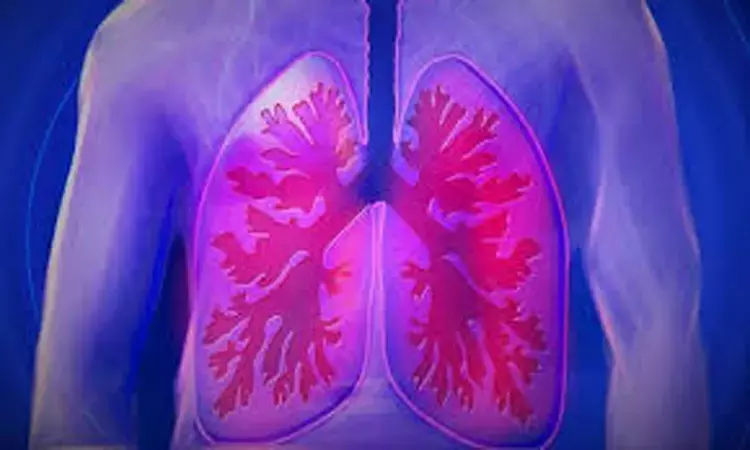- Home
- Medical news & Guidelines
- Anesthesiology
- Cardiology and CTVS
- Critical Care
- Dentistry
- Dermatology
- Diabetes and Endocrinology
- ENT
- Gastroenterology
- Medicine
- Nephrology
- Neurology
- Obstretics-Gynaecology
- Oncology
- Ophthalmology
- Orthopaedics
- Pediatrics-Neonatology
- Psychiatry
- Pulmonology
- Radiology
- Surgery
- Urology
- Laboratory Medicine
- Diet
- Nursing
- Paramedical
- Physiotherapy
- Health news
- Fact Check
- Bone Health Fact Check
- Brain Health Fact Check
- Cancer Related Fact Check
- Child Care Fact Check
- Dental and oral health fact check
- Diabetes and metabolic health fact check
- Diet and Nutrition Fact Check
- Eye and ENT Care Fact Check
- Fitness fact check
- Gut health fact check
- Heart health fact check
- Kidney health fact check
- Medical education fact check
- Men's health fact check
- Respiratory fact check
- Skin and hair care fact check
- Vaccine and Immunization fact check
- Women's health fact check
- AYUSH
- State News
- Andaman and Nicobar Islands
- Andhra Pradesh
- Arunachal Pradesh
- Assam
- Bihar
- Chandigarh
- Chattisgarh
- Dadra and Nagar Haveli
- Daman and Diu
- Delhi
- Goa
- Gujarat
- Haryana
- Himachal Pradesh
- Jammu & Kashmir
- Jharkhand
- Karnataka
- Kerala
- Ladakh
- Lakshadweep
- Madhya Pradesh
- Maharashtra
- Manipur
- Meghalaya
- Mizoram
- Nagaland
- Odisha
- Puducherry
- Punjab
- Rajasthan
- Sikkim
- Tamil Nadu
- Telangana
- Tripura
- Uttar Pradesh
- Uttrakhand
- West Bengal
- Medical Education
- Industry
Nitrate supplementation may help breathing and lung clearance in the elderly

New research published today in The Journal of Physiology shows that nitrate improves function in the diaphragm, the muscle involved in coughing and breathing, by improving power. The study done in old mice, if replicated in humans, could provide a strategy for helping elderly people clear the lungs more effectively and avoid infection.
Previous studies showed nitrate was helping muscles by improving use of calcium in the muscle. This finding that it's additionally affecting power is significant, especially in the context of COVID-19, because the diaphragm is the primary inspiratory muscle used for breathing and coughing, the latter being relevant for clearing the lungs.
The research team at the University of Florida found that dietary nitrate supplementation elicited a pronounced increase in contractile function (power) of the diaphragm, a respiratory muscle, of old mice.
They made their measurements during maximal activation, so the effects observed seem to be caused by an improvement in the function of contractile proteins rather than calcium handling.
Few short-term interventions have such a profound impact on muscle contractile function, as was observed in this study.
Dietary nitrate is readily available for humans and could be used, under proper supervision, to improve respiratory muscle dysfunction that contributes to shortness of breath and morbidity in the elderly.
The researchers gave sodium nitrate to old mice in their drinking water daily for 14 days. The control group received regular water. Diaphragm muscle contractile function cannot be assessed directly in live animals or humans. Thus, they tested diaphragm function in muscle tissues under controlled conditions for muscle stimulation and oxygenation.
The main limitations are that mouse and human diaphragm have different percentages of fast and slow muscle cells. Mouse diaphragm consists of 90% fast muscle cells; the human diaphragm consists of 25-50% fast muscle cells depending on several factors that include and age and sex.
Dietary nitrate seems to exert a greater impact on the contractile function of fast muscle cells. Thus, the benefits to the human diaphragm may not as pronounced as was observed in mice. They also only tested male mice, and the benefits for females is unknown.
Leonardo Ferreira, senior author on the study said:
"Our findings are especially important in light of the current COVID-19 pandemic as they suggest that, if replicated in humans, dietary nitrate is useful to improve respiratory muscle dysfunction that contributes to difficulty in weaning patients from mechanical ventilation."
Hina Zahid Joined Medical Dialogue in 2017 with a passion to work as a Reporter. She coordinates with various national and international journals and association and covers all the stories related to Medical guidelines, Medical Journals, rare medical surgeries as well as all the updates in the medical field. Email: editorial@medicaldialogues.in. Contact no. 011-43720751


